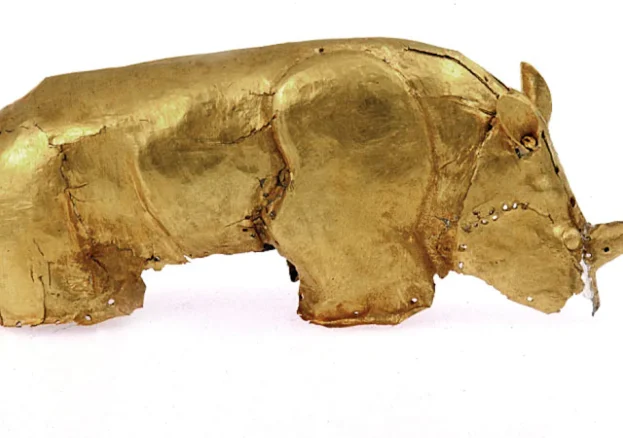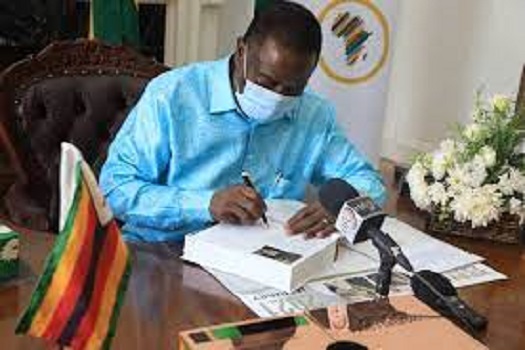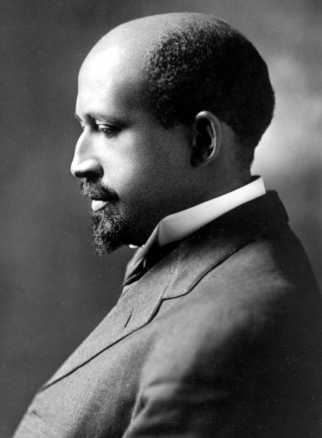
The blurb for the encyclopedia in part read: “The Africa Factbook is a response to 500 years of silence whilst others spoke on our behalf.” It is also sub-titled ‘Busting The Myths!’ President Mnangagwa explained the reason for the sub-title, saying:

“The myth that black people of Africa have no history. The myth is that the great Zimbabwe walls were not built by us indigenous local people. The myth is that Africans have never invented or discovered anything. All these and other myths are solidly busted by scientific facts, implacable sources and astute scholarship.”
His forthright assertions make it necessary for us to go back a bit into history. The late 19th British explorer and colonialist Henry Stanley dubbed Africa the “Dark Continent”. Certainly not a term of endearment. Before then, the German philosopher Georg Hegel opined: “Africa is no historical part of the world; it has no movement or development to exhibit.”
Such 19th-century thinking helped embed the negative views of Africa that still persist. As if that was not bad enough, British historian Hugh Trevor-Roper in the mid-20th century, 1963, to be precise had this to say:
“Perhaps in the future there will be some African history to teach. But at present, there is none; only the history of Europeans in Africa. The rest is darkness.”
What is shocking is that Trevor-Roper was a highly placed Oxford University history don, who was either ignorant, a white supremacist, or both. Because had he cared to read on the subject before mouthing off, he would have discovered that British journalist and historian Basil Davidson had published two books four years prior – ‘Old Africa Rediscovered’ and ‘Lost Cities Of Africa’, which spoke to Africa’s advanced civilisations before the arrival of the Europeans.
Of course, this besmirching of Africa’s history and reputation, and the whitewashing or hiding of Africa’s history and achievements, isn’t new.
One can not talk about the way African history has been treated, particularly by the European power structure, without mentioning the word – epistemicide. This is one of the definitions that can be found on the Quora online site:
“It’s a systematic destruction of any indigenous knowledge base. Any knowledge which doesn’t converge with the perpetrator’s knowledge system. The term can, for instance, be used in the context of the British imperial subjugation of its colonies’ traditional knowledge system during the 19th and 20th Centuries.”
In South Africa, the discovery in 1932 of the Golden Rhinoceros, a 13th century artefact from the southern African Mapungubwe kingdom, was kept hidden by the apartheid South African regime. Because such an intricate artefact made by Africans some 800 years ago, went against the racist apartheid philosophy, which depended on the promotion of Africans as inferior and incapable.
Over in the United States, a revisionist history of Africa was one of the ways used to put down African Americans. To redress the damage done, WEB Du Bois, who is said to have in 1895 become the first African American to earn a PhD in history from Harvard University, envisioned in 1909 an encyclopedia that covered the achievements of Africa and people of African descent.

It took Du Bois over fifty years to begin to realise his dream when President Kwame Nkrumah facilitated the relocation of Du Bois and his wife to Accra, Ghana in order to work on the ‘Encyclopedia Africana’.
“I want the proposed Encyclopedia to be written mainly from the African point of view by people who know and understand the history and culture of Africans,” wrote Du Bois, as he began work in early 1962 as the Director of the Secretariat for the Encyclopedia Africana Project. Sadly, his work did not get far, as Du Bois died less than two years later, aged 95 years old.
According to my father-in-law, who was an aide to Nkrumah, Du Bois’ death was a double blow. Not only had Nkrumah lost a friend – they had known each for several years within the pan-Africanist movement, but also because Nkrumah was eager to have a book that trumpeted Africa’s achievements and boosted the African’s confidence. Just like how Nkrumah was using his African Personality philosophy to promote race pride and confidence.
The Accra-based Secretariat still exists, though it has been perennially hamstrung by lack of funding. Since 1977, it has published three of its target of 20 volumes of the ‘Encyclopaedia Africana: Dictionary Of African Biography’, which provides biographies of personalities confined to a couple of African countries per volume.
However, there are a number of ambitious publications that cover a wide breadth of Africa’s history, culture, and contributions to world civilisation.
In 1999, the first edition of ‘Africana: The Encyclopedia Of The African And African-American Experience’ was published as a single volume. It was edited by the academics Anthony Appiah and Henry Louis Gates, and has now expanded into a multi-volume edition.
But well before then, UNESCO envisioned in 1964 a series of encyclopedias to widely cover Africa’s history across various periods and disciplines. The aim was “to remedy the general ignorance of Africa’s history”. Since 1980, UNESCO has published eight volumes of the ‘General History Of Africa’ series, with three more planned to complete the collection. In 2014, the Encyclopaedia Africana Project proposal put forward by Ghana for the “documenting African history towards durable solutions to African challenges including forced displacement”, was adopted by the African Union.
Since then, the ‘People’s Of Countries’ series is one of the Project’s planned strands, which aims to provide “a comprehensive compilation and integration of articles on the major ethnic groups of countries, their authentic traditional structures and practices of education, economic, religious etc. and other major social institutions as well as the basis for the integration of all the ethnic groups into a functional state”.
The truth is that, whilst intellectual capital is in abundance across the African continent, publishers face financial challenges, especially in printing academic tomes. Even being within the African Union sphere, has not gotten The Encyclopaedia Africana Project’s two ‘Biography’ volumes to the publication stage.
‘The Africa FactBook’ is partly facing the same fate. The encyclopedia is the brainchild of the Institute of African Knowledge (INSTAK) think-tank, and published by its sister organisation Book Of African Records (BAR) in association with the African Union Commission (AUC). BAR signed a Memorandum Of Understanding with the AUC in 2016 to produce the tome.
However, it probably would not have seen the light of day, had it not been for President Mnangagwa’s personal interest in the project. He got the Zimbabwean government to fund the printing of a limited amount of physical copies in 2020. Dubbed the ‘Presidential Version’, although it has some 800 pages, it’s a cut-down version. The complete encyclopedia has 1,184 pages.
“At the moment we are short of funds to publish the full version of the book,” laments the encyclopedia’s editor Baffour Ankomah, a former editor of the London-based New African magazine. “We only published the shorter version last year. So any groups in the diaspora that can help with funding are welcome. The book has been at the printers in South Africa since early June 2021.”
In the meantime, the ‘Presidential Version’ has been made available as a free download on the African Union website. It starts with a chapter entitled ‘Ancient Egypt, our roots!’, which asserts ancient Egypt an African civilisation. And rightly so, as European historians and heritage practitioners have sort to divorce it from Africa. For example, the Egyptian displays in the British Museum are in a separate location from that of the rest of Africa. And with Elizabeth Taylor’s portrayal of Cleopatra of Egypt embedded in many people’s minds as a Caucasian, it’s no wonder a Harrow councillor at a council-funded African History Month event I co-organised, said in all seriousness: “Next, you’ll be telling me Egypt is in Africa!”
Chapters such as ‘The Moors, Africa’s Gift To Europe’ and ‘How Africa Developed Europe And America’, offer an African counter-balance to the prevalent Eurocentric portrayal of African history. It includes detailed profiles on all fifty-five African countries and much more.
There are pieces, such as the tongue in check titled ‘Has A Black Person Ever Invented Anything?’ The answer is of course yes, and several inventors of African heritage are listed. However, apart from a few unknown names to me, such as Dr Raphael E. Armattoe (1913-1953), a Ghanaian runner-up for the Nobel Prize in Physiology in 1948, who found the cure for the water-borne guinea-worm disease in the 1940s, I would hope the complete edition provides a more diverse list, including those of the 21st century. That said, this richly illustrated book is an absolutely useful resource for anyone interested in the history of the continent of Africa and its inhabitants.
I marked the last day of August with an event I organised called African History Reflection Day: The Global African People’s Forum. It featured a video contribution by Prof Sir Hilary Beckles, the Vice Chancellor The University of the West Indies. In addition to explaining why the concept of pan-Africanism “has to step back”, he said that he no longer supported the concept of an African Diaspora. He’s now advocating for Global Africa, a unifying concept, which makes no distinction between, nor separates, the continent and its Diaspora.
His view has had an impact on the ongoing work on the remainder of UNESCO’s ‘General History Of Africa’ series. Because hitherto, the eight volumes thus far published – these are freely available online and in a number of colonialist and African languages – have focused solely on African history located on the African continent. But now, space is being made to include African history of the Diaspora.
The history of the history of African encyclopedias continues. A statement from Prof Beckles’ office points out that: “He is a co-editor of Volume 9, a UNESCO ‘General History Of Africa’ which is called ‘Global Africa’. The volume looks at Africans wherever they are in the world throughout history. The editorial work has been completed and the manuscript is currently with UNESCO. It will hopefully be published soon.”
This shift redresses the deficiency which meant that Africans outside of Africa were “no longer part of African history. You are now a part of British history. You’re now a part of American history. You’re part of Asian history, but you are no longer within the parameters of African history because you have left the continent.”
So how did the ‘General History Of Africa’ series come about, what have been the challenges and what is the plan, going forward? UNESCO representative in Ghana Abdourahamane Diallo provided the answer at the 2022 African History Reflection Day meeting.
He said that it was the African countries upon joining UNESCO, after attaining ‘independence’ in the 1960s, that “asked UNESCO to help them re-write the story of Africa – that’s what they did.
“The eight volumes were ready in the ’80s. But to what extent have these volumes been shared? They are not known in the fifty-five African countries, nor in the Global Africa or in the Diaspora. They are not known.
They are still to be valorised.
“So UNESCO tried for more than 30 years now. With the member states, there have been lots of resolutions. Even at UNESCO level, but also the Africa Union resolutions with member states committing to include it in their curricula. But still so far we can count on one hand the countries that it’s really journeyed in … so the road is still long for the sharing of available information because it is that information which builds the mind, which frees the mind, because it’s facts, it’s science, it’s not ideology.
“It’s history – it’s there. But there’s still a big gap, and we at UNESCO are aware and recently, at the last General Conference of UNESCO, another resolution said that the ‘General History Of Africa’ will be a flagship priority programme for the next eight years to ensure that each member state really commits and puts it in their curricula. So it’s an ongoing battle.”
There has even been the formation of the UNESCO Coalition of Artists for the General History of Africa, which includes British trade poetess and trade unionist Zita Holbourne, in an effort to attract new and also young readers to the history resources, by using arts and culture.
Finally, there’s a much quoted African proverb, which says: “Until the story of the hunt is told by the lion, the tale of the hunt will always glorify the hunter.” However, it would seem like until Africans and African institutions fund the documenting of their history from a pan-Africanist lens, their stories will always be from the perspective of others.
